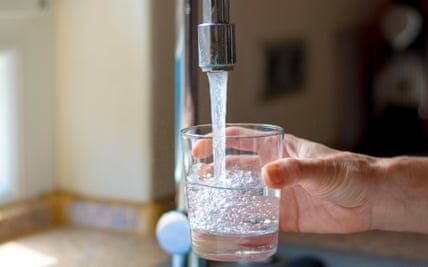
The government of England has decided not to adopt the new EU regulations that require pharmaceutical and cosmetic companies to bear the cost of pollution in rivers according to the “polluter pays” concept. Campaigners believe that the country is lagging behind in this matter.
European legislators have approved an amendment to the UWWT directive that aims to impose stricter measures against pollution. The revised regulations will require increased removal of nutrients from agricultural and sewage waste in order to protect water systems. Additionally, the standards will now encompass micropollutants, including chemicals from pharmaceutical waste, for the first time.
The recent update includes a significant policy known as “extended producer responsibility.” This requires cosmetic and pharmaceutical companies to financially support the treatment of wastewaters if they are responsible for chemical pollution. The EU is specifically implementing a “polluter pays” principle, where the responsible industry will cover some of the expenses for removing chemicals from water bodies instead of it being paid for through water bills or public funds. Under the new rule, industries with the highest pollution levels will be required to cover at least 80% of the cost for removing micropollutants.
According to the EU, this action would result in improved water quality in rivers, lakes, groundwater, and seas throughout Europe.
Chloe Alexander, a senior campaigner at CHEM Trust, stated that the UK needs to immediately adopt measures similar to the EU’s to hold polluters accountable for the harm they cause and to prohibit the use of toxic chemicals from the source. This is necessary to protect public health and prevent environmental pollution. At present, the UK remains vulnerable to a mounting number of hazardous chemicals that have been banned in other EU nations.
It is unfair to expect the British citizens to pay for the extensive expenses that may arise from addressing chemical pollution caused by inadequate chemical management.
Other regions of the UK will implement additional regulations for micropollutants, potentially leaving England and Wales behind in terms of water pollution control. The Windsor framework requires Northern Ireland to follow urban waste water treatment updates, as it is obligated to have similar environmental regulations as the Republic of Ireland. The Scottish government plans to adopt comparable regulations to those for UWWT in order to maintain compliance with the EU and facilitate potential re-entry into the bloc in the case of Scottish independence.
According to Michael Nicholson, the leader of environmental policy at the Institute for European Environmental Policy, the implementation of the revised EU legislation on treatment of wastewater could have significant positive impacts. This new law would target pollution caused by cosmetic and pharmaceutical products that enter rivers and oceans, posing a threat to both human health and aquatic life. The UK may face a major contrast in its approach to cleaning wastewaters, and should take this into account and strongly consider adopting a similar approach.
The updated regulations will include consistent surveillance of tiny particles of plastic in the entry and exit points of city sewage treatment facilities, as well as in the residue. Additionally, there will be monitoring of persistent chemicals like PFAS. Currently, there are no intentions for England to implement mandatory monitoring.
Libby Peake, a senior policy analyst at Green Alliance, stated that in 2018, the UK government took swift action by prohibiting certain microbeads found in wash-off cosmetics. This move was praised; however, the ban, which is still referred to as a global leader, has significant gaps that allow many microplastics to pass through.
after newsletter promotion
The restriction currently in place only applies to a small portion of deliberately added microplastics. It may come as a shock to discover that various cosmetics, including lipstick and sunscreen, are still allowed to include plastic ingredients in the UK. Additionally, plastic can legally be used in medicinal products, paints, detergents, and fertilizers. The EU is taking action to restrict a much wider range of these harmful plastic particles, and the UK should follow suit promptly.
A representative from the UK government stated that there is already a law in place, known as the polluter pays principle, under the Environment Act. They also mentioned that several of our official programs meet or exceed goals set by the EU.
Moreover, we are implementing strong measures to hold those who pollute accountable. This includes increasing water company inspections by four times, expediting £180 million in investments to reduce sewage spills, and amending legislation to allow the Environment Agency to impose unlimited penalties on polluters, making enforcement quicker and more efficient.
Source: theguardian.com


